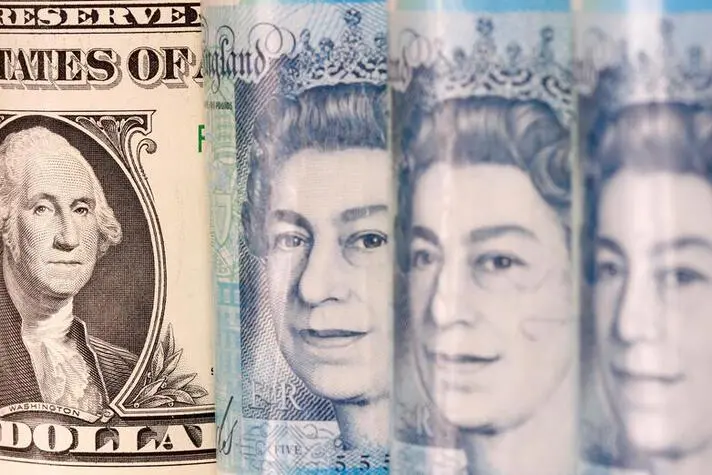PHOTO
LONDON - The British pound slipped on Thursday but held close to recent highs, withstanding a wider selloff that has knocked risk currencies this week.
The pound had risen above $1.41 for the first time since February on Monday, helped by a combination of dollar weakness, market relief over Scottish election results, lockdown easing measures and the Bank of England raising its forecast for economic growth.
Better-than-expected British GDP numbers on Wednesday also supported the pound, although a rise in the dollar after better-than-forecast U.S. inflation data unravelled some of sterling's recent rally.
On Thursday, the pound traded at $1.4043, down marginally on the day. But the drop from the highs of earlier this week was modest given sharp falls in global stock markets and a deterioration in general investor sentiment.
Against the euro, sterling weakened 0.2% to 86.08 pence.
Analysts say a combination of a stronger UK economic rebound than expected and the belief that any Scottish independence vote pushed by nationalists is a long way off make the pound a relatively attractive currency.
"The better than expected March UK GDP yesterday underscored the bright outlook for the pound and the expected solid UK data this quarter should further support the currency," ING analysts said in a research note.
"We expect EUR/GBP to re-test the 85 pence level in the coming weeks. After the latest dip in GBP speculative positioning, sterling longs should start increasing yet again."
CFTC positioning data showed that speculators reduced their net long position on the pound in the week to May 4.
Sterling is the second best-performing G10 currency in 2021, helped by bets that Britain's rapid vaccination drive will lead to a quicker economic rebound.
The currency has also benefited from the Bank of England beginning to taper its bond purchasing programme last week, on the back of the improving economic outlook.
Bank of England policymaker Jonathan Haskel said on Wednesday he was not too concerned about the medium-term inflation outlook in Britain, but would watch out for damage done by the pandemic to the country's productive capacity.
British house price inflation hit its highest level since the late 1980s in April as buyers raced to take advantage of an extended tax break just as sellers retreated from the market, a survey showed this week.
(Reporting by Ritvik Carvalho and Tommy Wilkes Editing by Gareth Jones and Barbara Lewis) ((Ritvik.Carvalho@thomsonreuters.com; +44 2075429406; Reuters Messaging: ritvik.carvalho.thomsonreuters@reuters.net; Twitter @ritvikcarvalho))





















